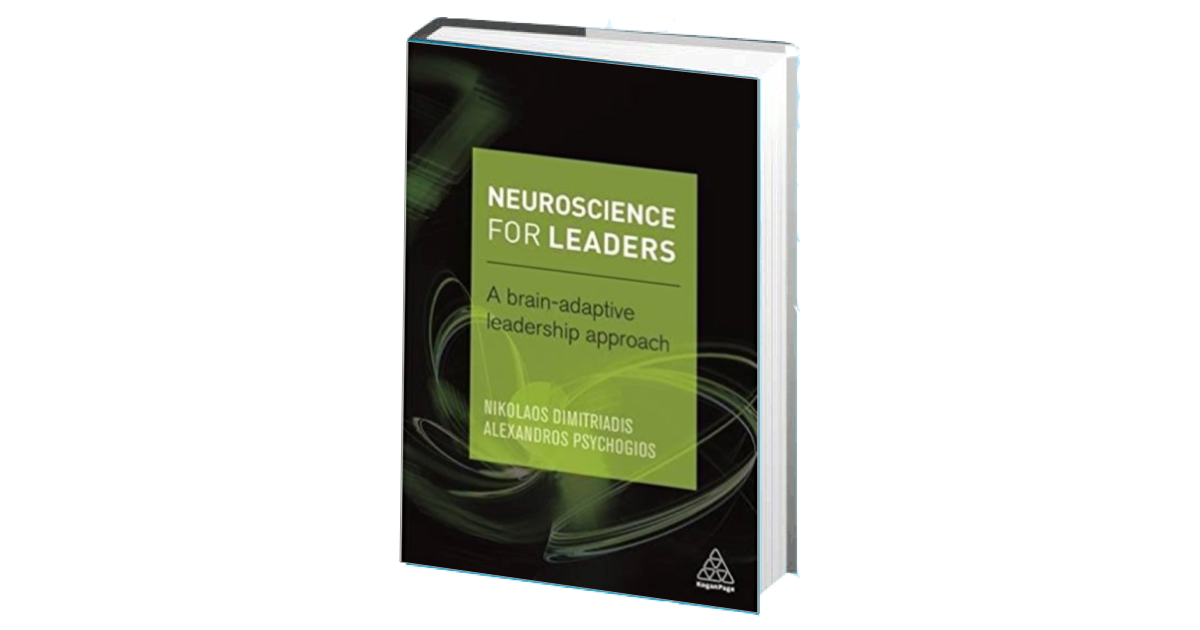
02 Apr Neuroscience for Leaders: A Brain Adaptive Leadership Approach
Recommended Reading by Will Corley, Co-Founder of BetterManager.
Have you been reading about neuroscience and leadership?
If you’re like other busy managers, you probably don’t have a whole lot of time to read about the latest ideas in management.
That’s how I can help. As co-founder of BetterManager. I am responsible for researching and keeping our program at the forefront of the latest discoveries, such as the connection between management science and neuroscience, and highlighting important resources for you.
So, today, I’d like to introduce you to the book that I’ve just finished reading: Neuroscience for Leaders: A Brain-Adaptive Leadership Approach. The authors, Nikolaos Dimitriadis and Alexandros Psychogios, make a great case for understanding and leveraging the power of the brain as a key to successful leadership. They point out that our increased knowledge of the brain provides a blueprint for leaders to help others thrive.
Dimitriadis and Psychogios strongly believe that by understanding how the brain works and by accepting our ability to alter how the brain reacts to stimuli, we are in a better place to reflect on our experiences. As a result, we will formulate better judgments, and therefore adapt our leadership to make ourselves and our teams more effective. One of the tools offered by the authors is the Brain Adaptive Leadership (BAL) model consists of four pillars:
1. Thought
2. Emotions
3. Brain automations (habits)
4. Relations.
The first pillar allows leaders to “release the true power of their analytical thinking”, and the second pillar emphasizes the importance of being able to identify emotions that are at play, so that the positive emotions can be used to best advantage. Recognizing in the third pillar that we are creatures of habit, the authors assure us that we can destroy old, negative habits, and adopt more positive ways of interacting with the world. Finally, the fourth pillar focuses on the importance of communication to build relationships and demonstrate “presence, warmth, and strength”.
This book is filled with scientific insights and practical suggestions that provide a useful guide for managers. It is a “comprehensive brain-focused approach to businesses, organizations, managerial, educational and personal lives”. I found the book very applicable to frontline managers, who are challenged every day in various ways to facilitate the growth and development of individuals and the performance of their teams. It’s a great resource because it’s on the cutting edge of what we are learning about the brain and ourselves.
I would strongly recommend this book to managers at all levels. You can purchase it on Amazon, and then I invite you to contact us about joining a coaching session where we can walk through the authors’ ideas together. At BetterManager we believe that coaching provides a great forum. It’s a place for managers to reflect on their experience, to step back from the fray, and to better understand what is working, so they may better meet their everyday challenges. We believe that better managers make a difference.
Will Corley, Psy D.
- Want to learn more about BetterManager? Click HERE to reach out.



Sorry, the comment form is closed at this time.